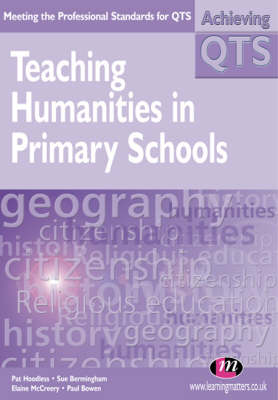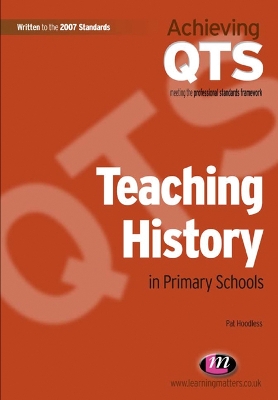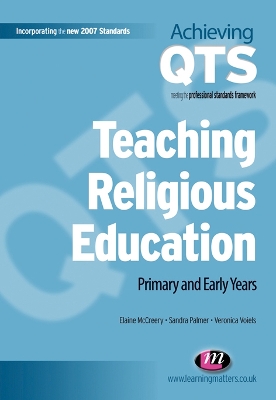Achieving QTS
3 total works
Teaching Humanities in Primary Schools
by Susan Bermingham, Paul Bowen, Elaine McCreery, and Pat Hoodless
Published 1 January 2003
This clear introduction to teaching humanities subjects in primary schools supports trainee and newly-qualified teachers in their teaching of the core humanities subjects: geography, history and religious education. Written around the Professional Standards for QTS, it includes practical guidance on topics such as the National Curriculum, planning, teaching and learning strategies, citizenship education and how to organise fieldwork. Throughout the book, practical tasks highlight important concepts and research summaries provide a concise guide to theoretical principles.
This book introduces trainees and newly qualified teachers to the teaching of history in primary schools, and covers key concepts, skills and knowledge for the history curriculum at Foundation Stage, KS1 and KS2. Contents include planning, teaching and learning strategies, assessment, reflection and evaluation, as well as a range of practical ideas for classroom activities and cross-curricular themes. Each chapter is underpinned by national and international research; also included are links to important themes such as citizenship, out-of-school learning, sustainability, diversity and inclusive practice. Throughout, content is related to new initiatives such as Every Child Matters and Excellence and Enjoyment.
Teaching Religious Education
by Elaine McCreery, Sandra Palmer, and Veronica M Voiels
Published 1 January 2008
Many trainee primary teachers are uncertain as to the place and purpose of RE in primary schools. This book is designed to alleviate such fears and give trainees the security and confidence to teach RE effectively. Trainees are encouraged to recognise their own religious position and understand how they handle their own beliefs and commitments in the classroom. In addition, they will learn how to be sensitive to children's religious viewpoints, allowing children to share their beliefs in a secure and supportive environment. A range of strategies help readers to provide engaging and appropriate RE across the primary age phase.


